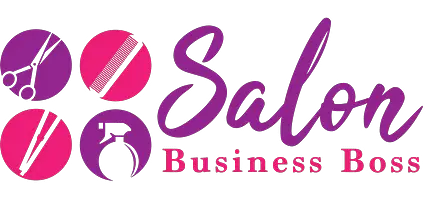Starting a small hair business can be an exciting venture, but it requires careful planning, organization, and attention to detail. From obtaining licenses, permits, and insurance to renovating the space and building a strong customer base, there are numerous steps involved in establishing a successful hair business.
To start a small hair business, secure licenses, permits, and insurance. Renovate the space to meet local codes. Craft a solid business plan, hire a skilled team, and source high-quality equipment. Create a strong online presence and prioritize customer experience. Stay updated with industry trends for long-term success. Sustainability and eco-friendly practices can attract conscious consumers. Embrace the journey with passion and dedication!
Obtain Licenses, Permits, and Insurance

Before embarking on the exciting journey of opening your small hair business, one of the critical initial steps is to ensure you have all the necessary licenses, permits, and insurance in place. The specific requirements for these documents may vary depending on your location and the range of services you intend to offer.
First and foremost, you will likely need a business operating license to legally establish your salon. Additionally, if you or any of your employees will be providing hairdressing or cosmetology services, obtaining the appropriate cosmetology licenses is essential. This ensures that your staff is qualified to deliver professional services to your clients.
You’ll need to secure a sales tax permit, enabling you to collect and remit taxes to the appropriate authorities. Compliance with health and safety regulations is also vital for any salon business. This may involve obtaining permits that require health and safety inspections for your salon space.
Liability insurance is a non-negotiable aspect of protecting your business. Accidents can happen, and having insurance coverage ensures that your business is shielded from potential financial liabilities arising from unforeseen incidents or legal claims.
Read more about: Navigating the Regulatory Landscape: Requirements to Open a Hair Salon
Renovate the Space to Meet Local Codes
The location and layout of your salon space play a crucial role in creating a successful hair business. To ensure compliance with local building codes and regulations, consider renovating the space accordingly.
Ventilation is an essential aspect of any salon. Proper airflow prevents the buildup of fumes and odors from hair products and chemicals, ensuring a comfortable environment for both clients and staff. Adequate lighting is also key in creating a pleasant ambiance and supporting precise hairdressing work.
Furthermore, make sure your salon space is accessible to people with disabilities. This includes wheelchair-friendly entrances, properly positioned fixtures, and ample space for maneuverability.
Creating a welcoming and comfortable atmosphere is vital for retaining clients and establishing a positive reputation. Reflect your brand and style in the salon’s design and décor, creating a unique identity that resonates with your target audience.
Optimize the layout of workstations, waiting areas, and wash stations to enhance the workflow and overall customer experience. A well-organized salon promotes efficiency and allows you to cater to multiple clients simultaneously.
By renovating your salon space to meet local codes and focusing on customer comfort, you set the foundation for a successful and thriving small hair business.
Develop a Solid Business Plan
Crafting a comprehensive business plan is an indispensable step when starting a small hair business. It serves as the roadmap that guides you towards achieving your objectives. Begin by defining your target market, understanding their demographics, preferences, and pain points. Conduct thorough research on your competitors to identify your unique selling points and what sets you apart in the market.
Outline the range of services you will offer and the pricing strategy you will adopt. Determine competitive and profitable pricing that also aligns with your target audience’s expectations. The marketing plan should detail how you will promote your services, attract clients, and build a loyal customer base.
Financial projections are crucial for estimating the financial health of your business. Set realistic revenue and expense estimates for the first year, including fixed and variable costs. This will help you budget for initial expenses, plan for contingencies, and understand the break-even point.
A well-structured business plan is not just for securing funding; it will be your guiding document throughout your entrepreneurial journey. It will keep you focused on your goals, help you identify potential challenges, and allow you to adapt your strategies as needed to ensure long-term success.
Source High-Quality Salon Equipment and Products
Investing in high-quality salon equipment and products is essential to providing exceptional services and ensuring customer satisfaction. Research and select reputable suppliers for salon essentials, such as salon chairs, hairdressing tools, hair dryers, and hair care products. The quality of your equipment directly impacts the quality of your services and the overall experience for your clients.
Consider offering eco-friendly options to appeal to environmentally conscious customers. Eco-friendly products not only promote sustainability but also showcase your commitment to responsible business practices, which can enhance your salon’s reputation.
Building strong relationships with suppliers can be advantageous in the long run. It can lead to discounts on bulk orders and better availability of products, ensuring you are well-stocked and ready to meet client demands promptly.
Prioritize investing in ergonomic and comfortable furniture for your clients and staff. Comfortable furniture contributes to a positive salon experience and can lead to increased customer loyalty and word-of-mouth referrals.
By carefully selecting high-quality salon equipment and products, you create a strong foundation for your hair business. Providing top-notch services and using reliable products will help establish your salon as a go-to destination for clients seeking professional hair care and styling services.
Hire and Train a Skilled Team

For your small hair business to thrive, hiring and training a skilled team is crucial. Seek out licensed and experienced hairstylists, colorists, and assistants who align with your salon’s vision and values. Look for professionals who are not only talented in their craft but also possess excellent communication skills and a strong work ethic.
Ongoing training is essential to keep your team up-to-date with the latest trends and techniques in the hair industry. Invest in workshops, seminars, and online courses to enhance their skills and knowledge. By staying informed about emerging trends, your team can offer cutting-edge services to your clients, keeping your salon competitive in the market.
Foster a positive work culture that encourages creativity, collaboration, and outstanding customer service. Create a supportive and motivating environment where team members feel valued and inspired to deliver their best work. Recognize and reward their achievements, fostering a sense of camaraderie and loyalty among the team.
Effective communication and regular team meetings can address any concerns and promote open dialogue. Encourage feedback from both team members and clients to continually improve your salon’s services and operations. By building a skilled and motivated team, your hair business can provide exceptional services, leading to satisfied clients and sustained growth.
Read more about: Opening a Salon Business: Elevating Beauty Standards
Create a Strong Online Presence
In the digital era, establishing a strong online presence is paramount for the success of your small hair business. Start by building a professional website that showcases your salon’s services, team members, and the inviting ambiance of your space. Use high-quality images that highlight your work and provide potential clients with a glimpse of the exceptional services you offer.
Social media platforms are powerful tools for reaching a broader audience. Set up accounts on popular platforms such as Instagram, Facebook, and Pinterest. Regularly post engaging content, including client transformations, behind-the-scenes glimpses, and tips for hair care and styling. Interaction with your audience is vital, so respond promptly to comments and messages, demonstrating your salon’s attentiveness and commitment to customer satisfaction.
Consider collaborating with local influencers or beauty bloggers to increase your online visibility and attract new clients. Share testimonials and positive reviews from satisfied customers to build trust and credibility.
Stay consistent with your online presence, maintaining an active and updated online presence to keep your audience engaged. Leverage online advertising and promotions to attract new clients and encourage repeat business.
A strong online presence will establish your salon as a reputable and sought-after destination, attracting clients who appreciate your expertise and creating a loyal online community that supports your small hair business.
Implement Effective Marketing Strategies
Effective marketing strategies are essential for attracting customers to your small hair business. Consider offering special promotions or discounts for first-time clients as an incentive to try your salon’s services. Encourage existing clients to refer friends and family by providing referral discounts, which can help expand your client base through word-of-mouth.
Collaborating with local influencers or bloggers can significantly boost your online visibility. These individuals have a dedicated following and can introduce your salon to a broader audience. Engaging in community events or sponsoring local charities not only showcases your salon’s commitment to giving back but also helps build goodwill and establishes a positive reputation within the community.
Leverage email marketing to keep your clients informed about new services, promotions, and upcoming events. Sending regular newsletters or updates will keep your salon top of mind and maintain a strong connection with your clientele.
Social media platforms are powerful marketing tools. Regularly post engaging content, such as before-and-after transformations, behind-the-scenes glimpses, and client testimonials. Interact with your audience by responding to comments and messages promptly, demonstrating your dedication to customer satisfaction.
By implementing these marketing strategies, your small hair business can effectively reach potential clients, build a loyal customer base, and foster a positive reputation in your local community and beyond.
Prioritize Customer Experience
Providing an exceptional customer experience is paramount for the success of your small hair business. Your salon’s reputation largely depends on the satisfaction of your clients, and word-of-mouth referrals can be a powerful driver of new business.
Train your team to be attentive, friendly, and responsive to client needs. Active listening and open communication are essential to understanding and fulfilling each client’s unique requirements. Encourage your staff to build genuine connections with clients, creating a warm and welcoming atmosphere that encourages repeat visits.
Enhance the salon experience by offering complimentary refreshments, ensuring comfortable waiting areas, and providing entertainment options such as magazines or Wi-Fi. Clients appreciate the extra touches that make their salon visit enjoyable and relaxing.
Personalize services based on individual preferences and needs. Take the time to understand your clients’ hair goals and deliver personalized recommendations and treatments. Consistency in service quality is vital, as every client should receive the same high level of care and attention.
Ask for feedback from clients regularly, either in person or through follow-up emails. Act on constructive feedback to continuously improve your salon’s services and ensure that client expectations are met.
By prioritizing customer experience, your small hair business can build a loyal and satisfied clientele. Satisfied customers are more likely to become brand ambassadors, recommending your salon to friends, family, and colleagues, leading to organic growth and long-term success.
Monitor and Adapt to Market Trends

In the fast-paced beauty industry, staying updated with the latest market trends is essential for the success of your small hair business. Keep a keen eye on emerging hairstyles, techniques, and hair care products. Attend trade shows, workshops, and conferences to network with industry professionals, gain valuable insights, and discover new trends that can elevate your salon’s offerings.
Customer feedback is a valuable source of information for understanding the needs and preferences of your clientele. Regularly solicit feedback through surveys, online reviews, or in-person conversations. Use this feedback to identify areas for improvement and to adapt your services and marketing strategies accordingly.
Be open to innovation and consider embracing new technologies that can enhance the salon experience and improve service efficiency. Stay informed about advancements in hair care products, tools, and equipment that can add value to your salon offerings.
Adapting to market trends allows your hair business to remain competitive and relevant. By offering the latest trends and staying ahead of the curve, you can attract more clients, retain existing ones, and position your salon as a trendsetter in the beauty industry.
Read more about: Radiate Excellence: Designing a Salon Marketing Plan
Focus on Sustainability and Environmental Responsibility
Incorporating sustainable practices into your hair business is not only beneficial for the environment but also appeals to a growing segment of environmentally conscious consumers. Begin by using eco-friendly and natural hair care products that minimize the use of harmful chemicals and reduce environmental impact. These products cater to clients seeking safer and more sustainable alternatives.
Consider energy-efficient practices, such as using LED lighting and energy-efficient appliances, to reduce your salon’s carbon footprint. Implement recycling programs to properly dispose of waste and minimize the salon’s contribution to landfills. Water conservation is also crucial; encourage your team to use water efficiently during hair treatments.
Promote your commitment to sustainability as part of your branding and marketing efforts. Highlight your use of eco-friendly products and sustainable practices on your website and social media channels. Communicate your salon’s dedication to environmental responsibility, attracting environmentally conscious clients who share your values.
By adopting sustainable practices, your hair business can become a responsible and eco-friendly establishment. Beyond benefiting the environment, promoting sustainability can enhance your salon’s reputation and attract clients who prioritize eco-conscious choices. Demonstrating your commitment to environmental responsibility can be a powerful differentiator in the competitive beauty industry.
Conclusion
Starting a small hair business requires careful planning, dedication, and a passion for the beauty industry. By obtaining the necessary licenses, creating a solid business plan, hiring a skilled team, and implementing effective marketing strategies, you can lay the groundwork for a thriving and successful hair business. Prioritize customer experience and stay updated with industry trends to remain competitive and relevant in the ever-changing beauty landscape. With the right mindset and attention to detail, your small hair business can flourish and become a beloved destination for clients seeking exceptional haircare services.
Frequently Asked Questions

1. How can I handle the financial aspects of my business?
Keep detailed financial records and create a budget to monitor expenses and revenue. Consider hiring an accountant or using accounting software to stay organized.
2. What marketing strategies should I employ for my hair business?
Utilize social media, email marketing, local events, and partnerships to promote your salon. Encourage client referrals by offering incentives.
3. How do I stay competitive in the hair industry?
Offer excellent customer service, stay updated with trends, and continuously seek ways to improve your services. Differentiate your salon with a unique brand identity and consistent quality.
To learn more on how to start you own salon checkout my startup documents here.
Please note that the contents of this blog are for informational and entertainment purposes only and should not be construed as legal advice. Any action taken based on the information provided in this blog is solely at your own risk. Additionally, all images used in this blog are generated under the CC0 license of Creative Commons, which means they are free to use for any purpose without attribution.

About the author. Entrepreneur and Salon Business Fan.
Hi! I am Shawn and I am a happy individual who happens to be an entrepreneur. I have owned several types of businesses in my life from a coffee shop to an import and export business to an online review business plus a few more and now I create online salon business resources for those interested in starting new ventures. It’s demanding work but I love it. I do it for those passionate about their business and their goals. That’s why when I meet a salon business owner, I see myself. I know how hard the struggle is to retain clients, find good employees and keep the business growing all while trying to stay competitive.
That’s why I created Salon Business Boss: I want to help salon business owners like you build a thriving business that brings you endless joy and supports your ideal lifestyle.

